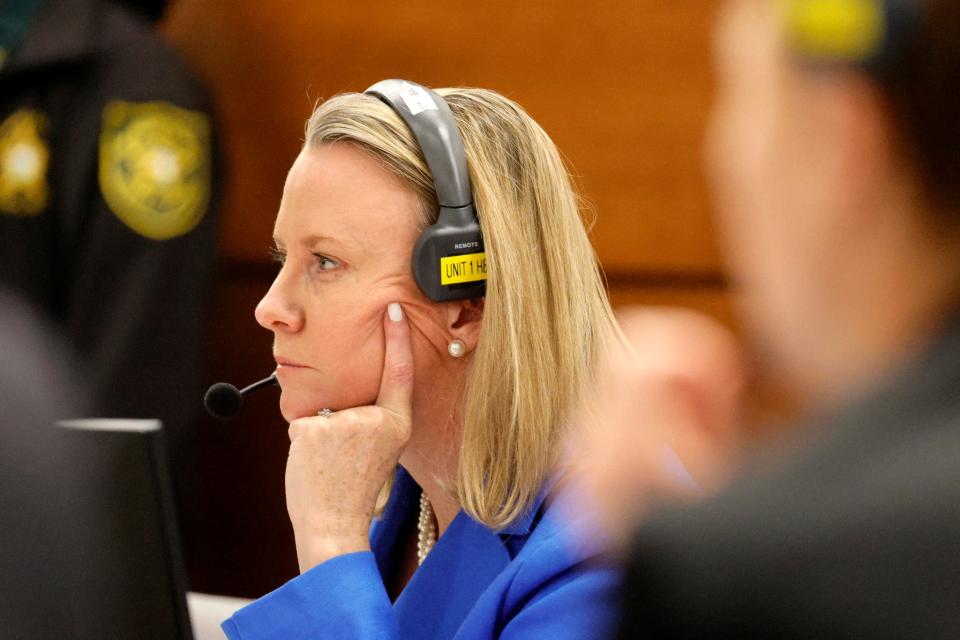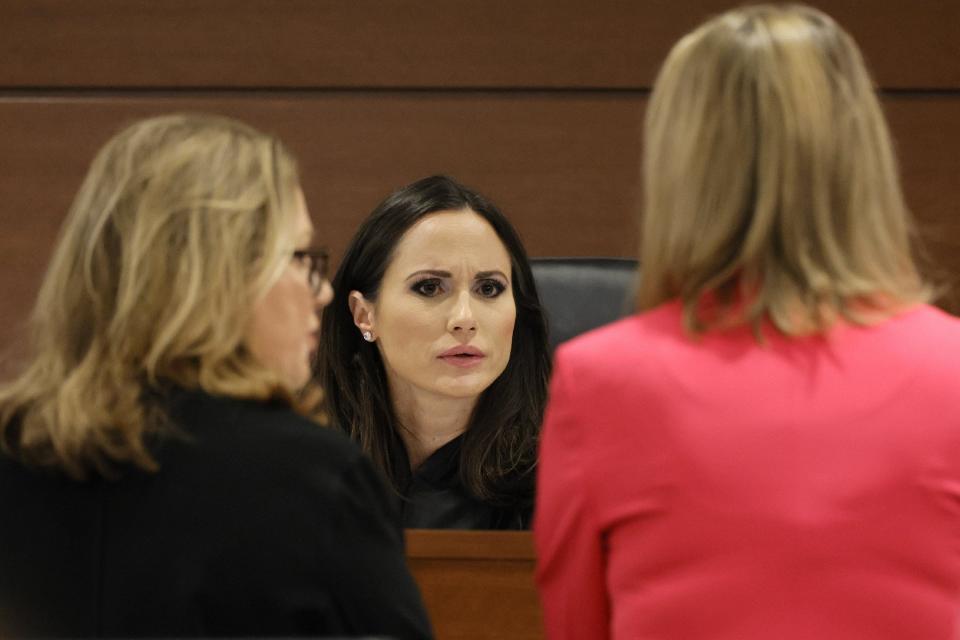The prosecution is done. Now, Nikolas Cruz's attorneys must work to save his life.
- Oops!Something went wrong.Please try again later.
FORT LAUDERDALE — It'll take a unanimous decision by jurors to sentence 23-year-old Nikolas Cruz to death for killing 17 people and wounding 17 others at Marjory Stoneman Douglas High School.
Prosecutors pushing for the death penalty rested their case against Cruz on Aug. 4 after 12 days of wrenching testimony and graphic evidence of the shooting and its aftermath. Jurors will return to the courtroom Monday to hear, for the first time, the gunman's defense in favor of life in prison.
Cruz, who lived near Lantana with a family friend in the weeks before the Parkland attack, pleaded guilty to premeditated murder and attempted murder in October.
'Cold, calculated, manipulative, deadly': Prosecutors opening statements against Cruz
Anything but normal: Lives of Parkland victims' families marked by absence, anguish, sorrow
A massacre frozen in time: Jurors tour preserved crime scene at Stoneman Douglas High

Nikolas Cruz brother and sister set to testify
Few things are certain about what his defense team has in store; lead defense attorney Melisa McNeill declined to provide an opening statement on the first day of the trial, opting to wait until the prosecution finished its case.
Motions filed with the court last week indicate that Cruz's half-sister Danielle Woodard, who is awaiting her own trial in Miami on a carjacking charge, is on the witness list and may testify as early as Monday.
Cruz's brother, Zachary Cruz, also is set to testify. His attorney objected to certain pre-trial questions posed by the prosecutors related to Zachary Cruz's marijuana use and finances, but Circuit Judge Elizabeth Scherer deemed the questions admissible on Thursday. Zachary Cruz's guardian, Richard Moore, also is expected to testify.

Controversial brain scan barred from defense
Scherer ruled last year that the defense will not be allowed to raise failures by law enforcement and the school district to argue against the death penalty. For third-party negligence to be considered in a criminal case, prosecutors said, it must be the "sole proximate cause" of the crime.
The defense and prosecution met before the judge Wednesday to debate whether the results of a controversial brain scan could be presented to jurors.
Cruz's attorneys initially said the “quantitative electroencephalogram,” or “qEEG,” supports diagnoses such as fetal alcohol syndrome, a condition they argued added to the gunman's mental and emotional problems. However, an expert hired by prosecutors to review the test result wrote that such scans are imprecise and "garbage."
“We are not relying on those types of scans and comparisons,” said defense attorney Casey Secor, reversing course.
To save Cruz's life, defense must convince just one juror to recommend life in prison
The names of witnesses are not published in advance, although Cruz's defense is expected to call upon experts to shed light on his mental health and troubles with socializing. To save Cruz's life, they must demonstrate that he was motivated by a severe mental or emotional disturbance, known in death penalty cases as mitigating factors.
Jurors can recommend execution only if aggravating factors outnumber mitigating ones. The cruel or premeditated nature of a crime can count as an aggravating factor, as can the existence of a previous felony conviction. Cruz pleaded guilty to a second-degree felony in 2021 for assaulting a prison guard at the Broward County Jail nine months after the Parkland shooting.
If even one juror dissents from the death penalty, Scherer will sentence Cruz to life in prison without parole.
Hannah Phillips is a journalist covering public safety and criminal justice at The Palm Beach Post. You can reach her at hphillips@pbpost.com.
This article originally appeared on Palm Beach Post: Parkland shooting: Zachary Cruz set to testify in death penalty trial

